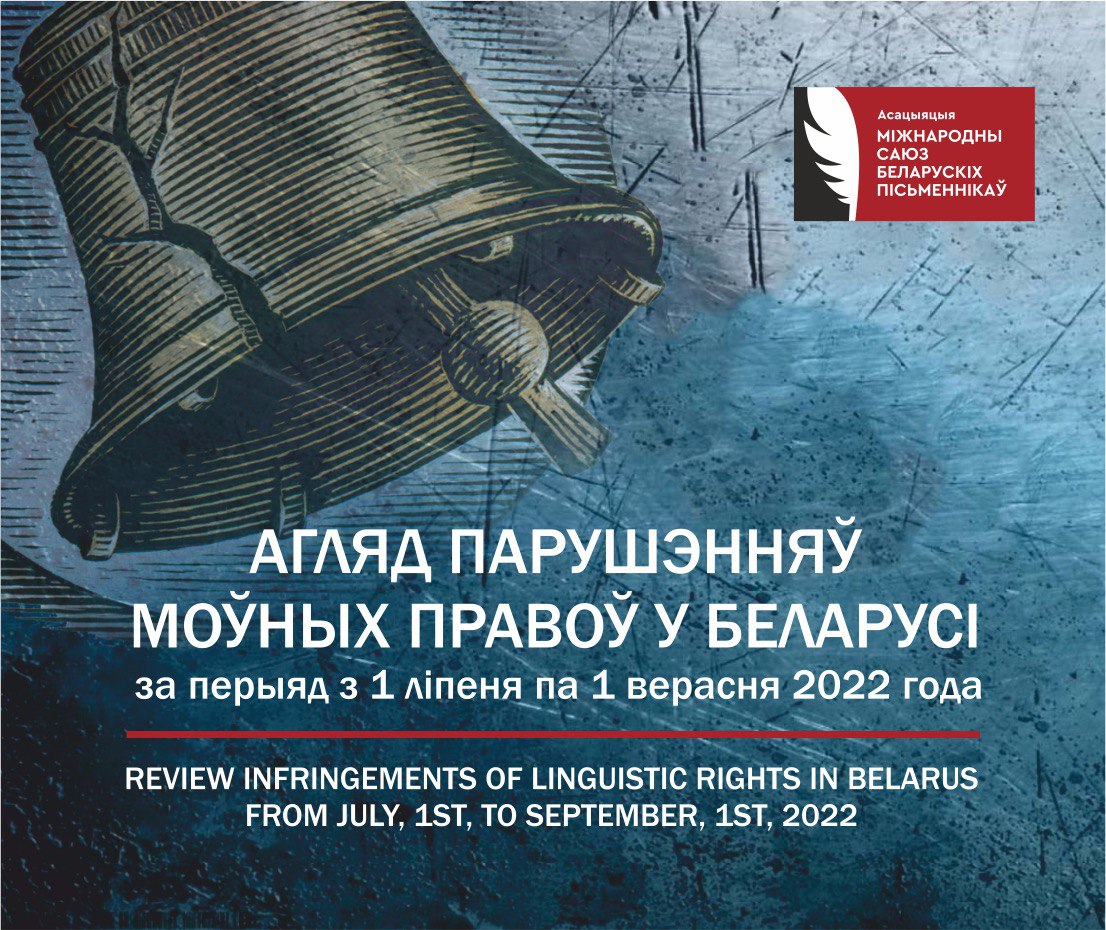
On September 26th, the European Union celebrates the Day of Languages for the sake of their preservation and development because the possibility to speak one’s native tongue and to use it in order to express one’s identity is a basic human right. According to the United Nations’ data, out of 7,000 languages spoken in the world, 40% can already disappear by the end of this century. This reduction of a language variety occurs because of political prosecutions, the absence of measures aimed at preservation, and globalization.
The Atlas of Languages of the World says that the Belarusian language is vulnerable/weakened – this is the first of four steps on the way to language extinction. The Belarusian language situation is unique as Belarus is the only monoethnic state in the world (the Belarusians are about 80% of the population) where the use of the native tongue is persecuted in spite of the fact that the Belarusian language is one of the state languages, along with Russian. However, this equality remains on papers only. In practice, there are infringements of this declared equality of the languages, and it is, first of all, state structures and establishments that discriminate people because of the language they speak.
Below, specially for the Day of European Languages, we publish an updated survey of infringements of linguistic rights in Belarus for 2 months – July and August 2022. The previous survey is here.
On July, 13th, 2022, within the framework of a judicial sitting in the Court of the Moscow District of Minsk that considered the criminal case according to Article №342 of the Criminal Code of the Republic of Belarus (the organization and preparation of actions that violate public order or active participation in them), Źmicier Daškievič (condemned according to Article №342 of the CC of the RB for 1 year and 6 months of deprivation of freedom in a standard regime penal colony; recognized as a political prisoner on 14 April 2022) in his last word said that during his detention “siloviki” [law enforcement officers] beat him and forced him to speak Russian, “What’s this person sayin’? He gotta speak normally. He gotta speak a normal language!”.
On August, 1st, 2022, the web-site of the basketball club “Cmoki [Dragons] Minsk” announced that the club would be renamed. Instead of the legendary Belarusian-language name “Cmoki Minsk”, the club started to be called simply “Minsk” and – in Russian. We shall remind that the club had the name “Cmoki Minsk” since 2012, and this name came from Belarusian mythology.
On August, 2nd, 2022, the Belarusian regional history and culture specialist, journalist, and guide Ihar Chmara was detained after an excursion in Minsk because he was speaking Belarusian. What Article he was punished according to is not known. A cellmate, who was in a cell together with Ihar in the temporary detention facility in Minsk, said that there were many cases like that – except for Ihar there were other people who had been detained because of their conversations in Belarusian on the streets.
In August 2022 (4th, 12th, and 19th), the lawyer and human rights defender Ihar Słučak received replies from three manufacturers of foodstuff: СТАА “Danon Shklov”, private enterprise “Darida”, and ТАА “МarsSЕАB” – in their letters they refused to mark their production in Belarusian. All the three companies stopped their correspondence with the lawyer.
In an interview to a Belarusian mass media, the ambassador of France to the Republic of Belarus said that during his work in Minsk in 2021-2022 he used to say “Hello!” and “Good-bye!” in Belarusian to Belarusian militiamen-security guards who only replied “Hello!” and “Good-bye!” in Russian.
Language discrimination in Belarus concerns not only the Belarusian language, but also the languages of the national minorities from the countries that condemned and occupied a principled position towards the infringements of human rights in Belarus – Lithuania and Poland.
In August 2022, the Belarusian authorities closed the only one Lithuanian-language school in Belarus. They said the reason why they had closed it was that they had revealed a number of infringements: safe and unobstructed evacuation of children and teachers from the school premises in case of an emergency situation cannot be carried out; protection against smoke and fire distribution cannot be carried out. Besides, warehouses are used as educational classes and workshops. The Pielasá secondary school in the Hrodna Region is a private educational establishment financed by the Ministry of Education of Lithuania; 114 pupils studied at this school; there were 24 teachers, 10 of whom are citizens of Lithuania. The school functioned since 1992.
Also, it became known that the Belarusian authorities ordered Polish-language schools in Vaŭkavysk and Hrodna since the 2022/2023 academic year to change the language of instruction from Polish to Russian.
In the beginning of August, there appeared the information that in Hrodna the pro-Russian activist Olga Bondareva launched a campaign against the Belarusian Latin alphabet used to write the names of streets in the city.
And at the end of August, it became known that another pro-Russian activist Yuliya Dudarenko spreads with the help of pro-state and pro-Russian Telegram channels the information on the petition aimed at interdicting the Belarusian Latin alphabet used to write the names of places in Belarus.
Pro-Russian activists demand that all geographical objects in Belarus should be called and spelt exclusively in Russian. We shall underline that Belarusian names of geographical objects are duplicated by Latin letters according to the “Instruction on transliteration of place names of the Republic of Belarus by letters of the Latin alphabet”, which was confirmed by the decision of the “State Committee on ground resources, geodesy, and cartography” back in 2000 as a legal act. It was accepted as obligatory at the state level.
The review is based on open sources, the information on which is available on request.
